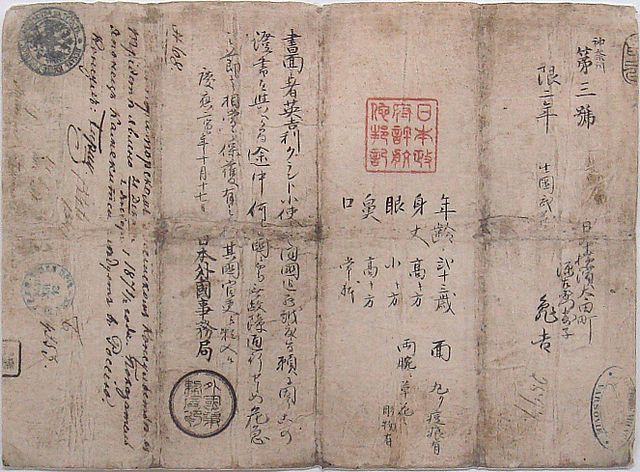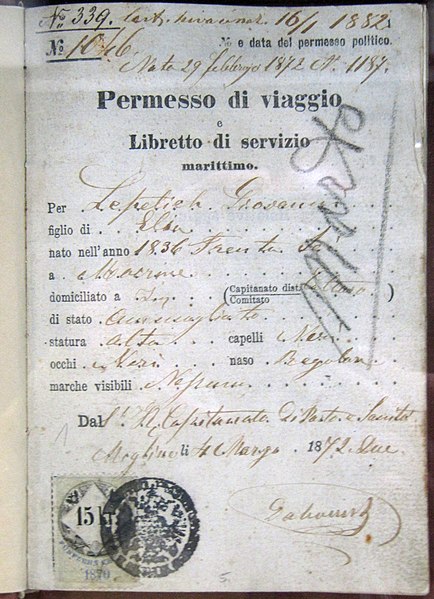United States passports are passports issued to citizens and nationals of the United States of America. They are issued exclusively by the U.S. Department of State. Besides passports, limited-use passport cards are issued subject to the same requirements. It is unlawful for US citizens and nationals to enter or exit the country without a valid US passport or passport-replacement document compliant with the Western Hemisphere Travel Initiative, though there are many exceptions; waivers are generally granted for U.S. citizens returning without a passport, and the exit requirement is not enforced. As of December 2023, a United States passport allows visa-free travel to 186 countries and territories, being ranked as the seventh most powerful in the world in terms of travel freedom.
United States passport
Signature page and data page of a non-biometric United States passport (pre-2007).
Signature page and data page of a biometric next generation passport (2021–present)
Message in the passport of an American Samoan stating that the passport holder is in fact a national, not citizen, of the United States.
A passport is an official travel document issued by a government that contains a person's identity for international travel. A person with a passport can travel to and from foreign countries more easily and access consular assistance. A passport certifies the personal identity and nationality of its holder. It is typical for passports to contain the full name, photograph, place and date of birth, signature, and the issue and expiration dates of the passport. While passports are typically issued by national governments, certain subnational governments are authorised to issue passports to citizens residing within their borders.
Clockwise, from top left: Dutch ordinary, Nepalese diplomatic, Chinese service, and Polish ordinary passports
Passport control at Dubai International Airport
First Japanese passport, issued in 1866
Italian passport, issued in 1872







